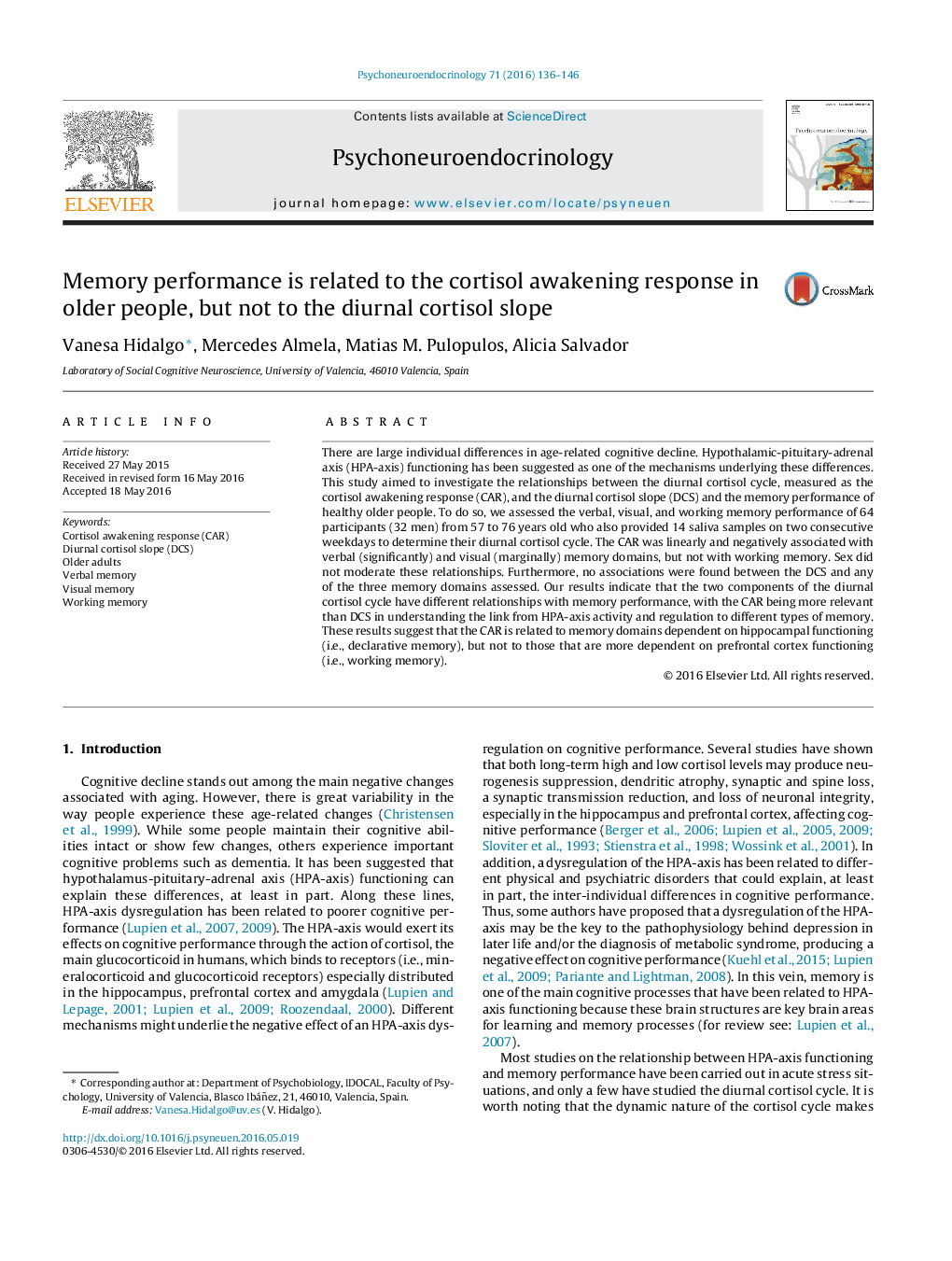| Article ID | Journal | Published Year | Pages | File Type |
|---|---|---|---|---|
| 6818018 | Psychoneuroendocrinology | 2016 | 11 Pages |
Abstract
There are large individual differences in age-related cognitive decline. Hypothalamic-pituitary-adrenal axis (HPA-axis) functioning has been suggested as one of the mechanisms underlying these differences. This study aimed to investigate the relationships between the diurnal cortisol cycle, measured as the cortisol awakening response (CAR), and the diurnal cortisol slope (DCS) and the memory performance of healthy older people. To do so, we assessed the verbal, visual, and working memory performance of 64 participants (32 men) from 57 to 76 years old who also provided 14 saliva samples on two consecutive weekdays to determine their diurnal cortisol cycle. The CAR was linearly and negatively associated with verbal (significantly) and visual (marginally) memory domains, but not with working memory. Sex did not moderate these relationships. Furthermore, no associations were found between the DCS and any of the three memory domains assessed. Our results indicate that the two components of the diurnal cortisol cycle have different relationships with memory performance, with the CAR being more relevant than DCS in understanding the link from HPA-axis activity and regulation to different types of memory. These results suggest that the CAR is related to memory domains dependent on hippocampal functioning (i.e., declarative memory), but not to those that are more dependent on prefrontal cortex functioning (i.e., working memory).
Related Topics
Life Sciences
Biochemistry, Genetics and Molecular Biology
Endocrinology
Authors
Vanesa Hidalgo, Mercedes Almela, Matias M. Pulopulos, Alicia Salvador,
